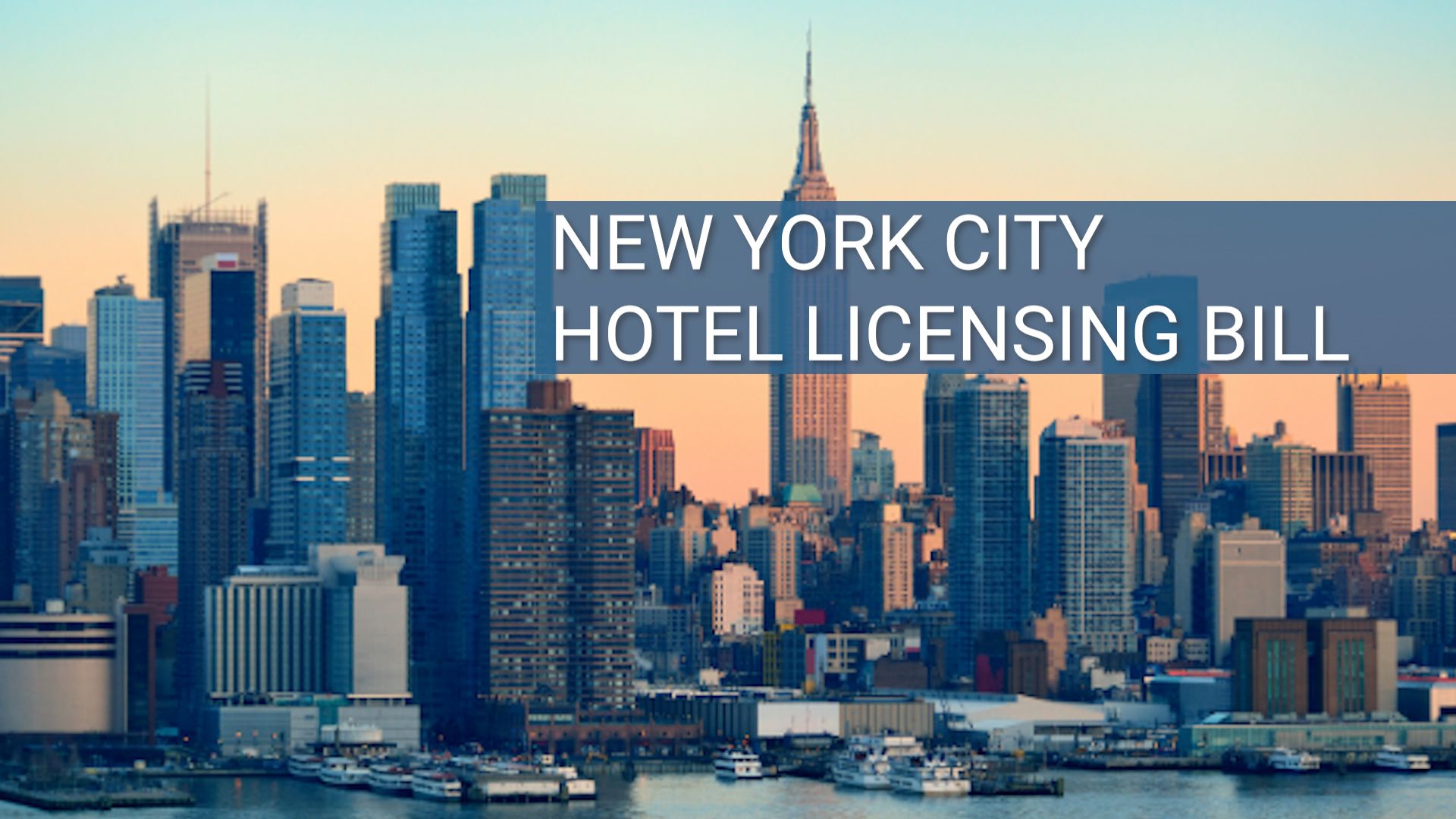
WASHINGTON (Oct. 23, 2024) – American Hotel & Lodging Association (AHLA) Interim President & CEO Kevin Carey released the following statement today after the New York City Council passed the “Safe Hotels Act.”
“Today’s passage of the ‘Safe Hotels Act’ (Int. 991) by the City Council caps a legislative scramble and special interest power play that will do irreparable harm to the city’s hotel industry and tourism economy. From the start, this rushed and haphazard legislative process has been in service of one goal; to deliver a single special interest victory at the expense of small and minority-owned businesses. The updated version of the bill – while including some concessions thanks to the advocacy efforts of hundreds of hotels and hospitality professionals – still unfairly and arbitrarily targets hotels with 100 or more rooms with regulations that have nothing to do with the bill’s stated goal of increasing health and safety. Instead, this bill will do material damage to the businesses and the tax revenue that hotels generate for the city’s economy and result in higher costs for travelers.”
“Ultimately, this bill has had one very important impact: it has galvanized the hotel industry, inclusive of hotel owners, operators, brands, employees and subcontractors. We are now stronger and more united than ever.”
Background
The final bill does the following:
- Creates a hotel licensing program. Hotels will be required to renew their license every 2 years and prove compliance with various health, safety and labor mandates. Hotels with a collective bargaining agreement that meet these requirements are exempt from this process.
- Prohibits hotels from using subcontractors for housekeeping and front desk staff. The subcontractor ban does not apply to hotels with less than 100 rooms.
- Requires human trafficking training, which was already mandated by state law.
AHLA helped lead a broad group of industry stakeholders against Int. 991 since it was introduced in July. Those efforts – which included the launch of a new industry coalition, Protect NYC Tourism, rallies on the steps of New York City Hall, and a paid and earned media campaign – led to significant improvements in the bill, such as:
- Removing a requirement for hotel owners to directly employ all employees, including restaurant workers and retail workers of third-party leases. This would have altered the hotel business model and specifically impacted the tax status of real estate investment trusts.
- Removing language that created joint-employment status between owners who use third-party management systems.
- Significantly reducing the arbitrary staffing mandates in the original bill, including staffing minimums for front desk and security staff.
- Removing the subjectivity of the hotel license. In the original bill, licenses could be revoked if an applicant was deemed to be unresponsive to the commissioner – making the license process ripe for political corruption.
- Removing the ability for a license to be revoked for a service disruption, including strikes, protests at or adjacent to hotels, and any unavailability of advertised amenities, like Wi-Fi, spas, and food and beverage services.

